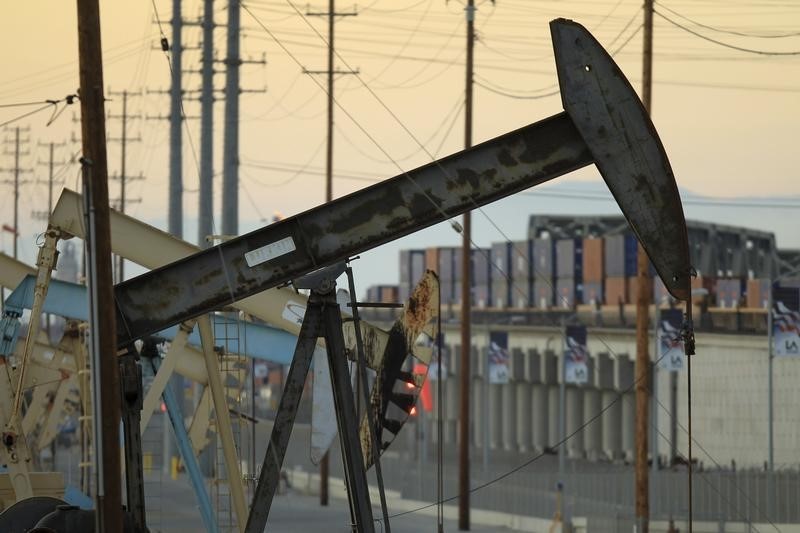© Reuters. A view shows the Yan Dun Jiao 1 bulk carrier in the Vostochny container port in the shore of Nakhodka Bay near the port city of Nakhodka, Russia August 12, 2022. REUTERS/Tatiana Meel/File Photo
By Colleen Howe
BEIJING (Reuters) – Oil prices fell on Wednesday as a stronger U.S. dollar limited demand for greenback-denominated crude, though the rising risks of supply disruptions amid the intensifying conflict in the Red Sea curbed the losses.
Global benchmark futures fell 36 cents, or 0.5%, to $77.93 a barrel by 0215 GMT. U.S. West Texas Intermediate crude futures (WTI) fell 43 cents, or 0.59%, to $71.97 a barrel.
Brent crude rose slightly on Tuesday while WTI fell as investors saw fundamentals weakening in the U.S. but the ongoing naval and air conflicts in the Red Sea increased concerns of tankers having to reroute to avoid the area, increasing costs and the amount of time for deliveries.
The U.S. dollar hovered near a one-month high on Wednesday after comments from U.S. Federal Reserve officials pushing back against aggressive interest rate cut expectations. The stronger dollar reduces demand for dollar-denominated oil for buyers paying in other currencies.
Falling oil prices were “triggered by slightly more hawkish comments from central bankers,” Daniel Hynes, senior commodity strategist at ANZ Bank, said in a note.
“The lack of response from the market to recent geopolitical risks suggests it is discounting the threat of supply disruptions. However, while no output has been lost so far, it is indirectly tightening in the market by pushing more supply onto the water.”
The U.S. on Tuesday mounted fresh strikes against the Iran-aligned Houthi militants in Yemen after a Houthi missile hit a Greek vessel in the Red Sea.
British oil major Shell (LON:) suspended shipments through the Red Sea after the U.S. and UK strikes began, but U.S. producer Chevron (NYSE:) is maintaining its Red Sea routes.
“While oil benchmarks may not reflect the Red Sea attacks, the realised price for oil and oil products for consumers has increased given the disruption to trade flows through the Red Sea and Suez Canal,” Vivek Dhar, director of mining and energy commodities strategist at the Commonwealth Bank of Australia (OTC:), said in a note.
Read the full article here

